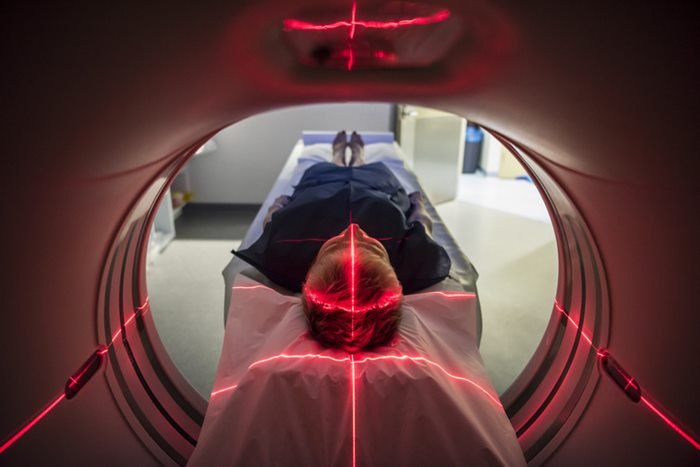A common type of bacteria found in wet, swampy environments may play a role in the development of most cases of Parkinson’s, says a study by researchers at the University of Eastern Finland and the University of Helsinki.
The specific cause of the disease is still a mystery to science. The American Institute of Neurological Disorders and Stroke estimates that only 15% to 25% of people with Parkinson’s have a family history. The new study, published May 1 in the journal Frontiers in Cellular and Infection Microbiologysheds new light on the subject.
“The disease is caused primarily by environmental factors, including exposure to bacterial strains Desulfovibrio. Only a small portion, around 10%, of Parkinson’s disease is caused by individual genes,” says professor microbiologist and lead author of the study, Per Saris, in a statement published by the University of Helsinki.
The study analyzed stool samples from 10 patients with Parkinson’s and their spouses who did not have the disease. The researchers isolated any strains of Desulfovibrio present in the samples and compared them to two different control groups of bacteria belonging to another genus.
Then, transgenic specimens of the nematode Caenorhabditis elegans were fed with the extracted microorganisms. They have been modified to express human α-synuclein.
Previous studies show that, both in the hereditary and spontaneous forms of the disease, neuronal dysfunction and cell death seem to have a strong relationship with the intracellular accumulation of the α-synuclein protein. It is an important component of Lewy bodies – aggregates of neurofilaments from degenerating neurons.
The nematodes with the Desulfovibrio were much more likely to produce α-synuclein pools and these clusters were larger. The strains of Desulfovibrio collected from Parkinson’s patients were better at aggregating the proteins in the C. elegans than those collected from partners.
window._taboola = window._taboola || (); _taboola.push({ mode: “thumbnails-c-3×1”, container: “taboola-mid-article”, placement: “Mid Article”, target_type: “mix” });

3 Cards_Photo_Gallery (2)
Parkinson’s is a neurological disease characterized by the progressive degeneration of the neurons responsible for producing dopamine.
KATERYNA KON/SCIENCE PHOTO LIBRARY/ Getty Images

*****Photo-hand-tremendo.jpg
This degenerative process of nerve cells can affect different parts of the brain and, as a consequence, generate symptoms such as involuntary tremors, loss of motor coordination and muscle stiffness.
Elizabeth Fernandez/Getty Images
window._taboola = window._taboola || (); _taboola.push({ mode: “thumbnails-mid-gallery”, container: “82-taboola-widget-1-photo-galley”, placement: “82-Widget 1 photo galley”, target_type: “mix” });

*****Photo-nurse-helping-woman-to-get-up-from-armchair.jpg
Other symptoms of the disease are slowness, muscle contraction, involuntary movements and postural instability.
izusek/ Getty Images

*****Photo-elderly-sitting-eating.jpg
In advanced cases, the disease also prevents the production of acetylcholine, a neurotransmitter that regulates memory, learning and sleep.
SimpleImages/ Getty Images
window._taboola = window._taboola || (); _taboola.push({ mode: “thumbnails-mid-gallery”, container: “82-taboola-widget-2-photo-galley”, placement: “82-Widget 2 photo galley”, target_type: “mix” });

*****Photo-red-haired-woman-sitting-in-a-wheelchair.jpg
According to the World Health Organization (WHO), although the disease is known to affect elderly people, about 10% to 15% of diagnosed patients are under 50 years old.
Ilya Ginzburg/EyeEm/ Getty Images

*****Picture-hands-on-the-others.jpg
It is not known for sure what causes Parkinson’s, but when it occurs in young people, it is common that it has a genetic relationship. In this case, the symptoms progress more slowly, and there is greater cognitive preservation and life expectancy.
Visoot Uthairam/ Getty Images
window._taboola = window._taboola || (); _taboola.push({ mode: “thumbnails-mid-gallery”, container: “82-taboola-widget-3-photo-galley”, placement: “82-Widget 3 photo galley”, target_type: “mix” });

*****Photo-person-doing-CT scan.jpg
The diagnosis is medical and requires a series of exams, such as: brain tomography and magnetic resonance imaging. For patients without symptoms, computed tomography is recommended to check the amount of dopamine in the brain
JohnnyGreig/ Getty Images

*****Picture-people-looking-at-the-skull-x-ray.jpg
Parkinson’s has no cure, but treatment can slow the progression of symptoms and help with quality of life. In addition to medication, monitoring by a multidisciplinary team is necessary. In some cases, brain surgery is possible.
Andriy Onufriyenko/ Getty Images
0
“Our findings make it possible to screen for carriers of these harmful bacteria. Consequently, they could be targeted for measures to remove these strains from the gut, potentially alleviating and delaying symptoms in patients with Parkinson’s disease,” suggests Saris.
According to the microbiologist, once the bacteria is eliminated from the intestine, the α-synuclein aggregates are no longer formed in the intestinal cells, from where they travel to the brain through the vagus nerve.
Get news from metropolises on your Telegram and stay on top of everything! Just access the channel: https://t.me/metropolesurgente.
The post Parkinson can be caused by a common bacteria, suggests study first appeared on Metropolis.




